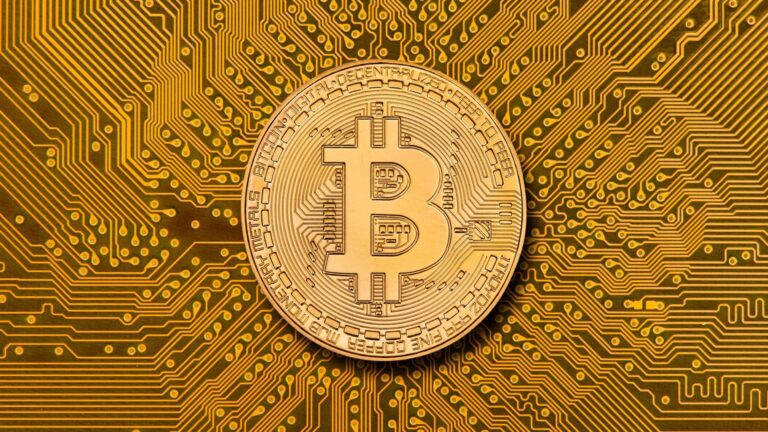Brazil’s Central Bank has weighed in on the ongoing global debate surrounding Bitcoin’s role as a store of value, firmly rejecting the notion of the cryptocurrency as “digital gold.” In a recent statement reported by Cointribune, the institution highlighted concerns about Bitcoin’s volatility and regulatory challenges, contrasting it sharply with precious metals’ traditional stability. As Bitcoin continues to gain traction among investors worldwide, Brazil’s official stance signals caution and underscores the complexities governments face in embracing cryptocurrencies.
Brazil Central Bank Challenges Bitcoin’s Status as Digital Gold
Brazil’s Central Bank has publicly disputed the widely held notion that Bitcoin serves as a reliable “digital gold.” In a recent statement, the institution emphasized concerns regarding the cryptocurrency’s volatility and questioned its efficacy as a stable store of value. Unlike gold, which traditionally acts as a hedge against inflation and economic uncertainty, Bitcoin’s price swings and regulatory uncertainties make it challenging for investors seeking a dependable safe haven.
Key points raised by the Central Bank include:
- High Price Volatility: Bitcoin’s rapid fluctuations undermine its potential as a stable asset.
- Lack of Intrinsic Value: Unlike physical commodities, Bitcoin depends heavily on market speculation.
- Regulatory Risks: Evolving legal frameworks create uncertainties impacting adoption and valuation.
| Asset | Volatility (12 months) | Perceived Stability |
|---|---|---|
| Gold | 8% | High |
| Bitcoin | 75% | Low |
Analyzing the Economic and Regulatory Implications for Brazil’s Cryptocurrency Market
Brazil’s stance on cryptocurrencies diverges sharply from the narratives popular in other markets, especially regarding the notion of Bitcoin as “digital gold.” According to recent statements from the Central Bank of Brazil, cryptocurrencies are viewed more as speculative assets rather than stable investment vehicles. This perspective shapes the country’s broader regulatory framework, which remains cautious and emphasizes consumer protection over outright endorsement. The economic implications are significant: while there is growing retail interest, institutional adoption lags due to regulatory uncertainties and the bank’s insistence on stringent compliance standards.
Regulators have introduced a series of measures aimed at controlling risk within the burgeoning crypto ecosystem. These include:
- Mandatory reporting requirements for exchanges to enhance transparency
- Anti-money laundering (AML) protocols aligned with international standards
- Tax guidelines clarifying the treatment of crypto gains for individuals and businesses
| Regulatory Area | Current Status | Impact on Market |
|---|---|---|
| Exchange Licensing | Pending formal framework | Limits institutional trust |
| Consumer Protection | Active monitoring | Reduces fraud incidents |
| Taxation | Enforced since 2020 | Improved compliance |
Expert Recommendations for Investors Navigating Brazil’s Crypto Landscape
Investors aiming to capitalize on Brazil’s evolving cryptocurrency market must exercise meticulous due diligence. Given the Central Bank’s recent pronouncement dismissing Bitcoin’s classification as “digital gold,” it’s crucial to reconsider traditional narratives around crypto assets. Experts urge market participants to diversify holdings, stressing the importance of pairing crypto investments with more established financial instruments to mitigate volatility risks inherent to digital currencies in emerging regulatory environments.
Prudent investors are also advised to stay abreast of regulatory developments, as Brazil’s government actively explores frameworks that could redefine crypto legitimacy and usage. Key strategic actions recommended by specialists include:
- Engaging with reputable local exchanges subject to regulatory oversight
- Implementing robust risk management protocols tailored to high volatility
- Regularly consulting updated market analyses and official guidance
- Leaning on diversified portfolios that balance both digital and traditional assets
| Recommendation | Rationale |
|---|---|
| Diversify Portfolio | Mitigates crypto volatility in unpredictable markets |
| Monitor Regulatory News | Staying compliant and adapting to new legal frameworks |
| Choose Verified Exchanges | Safety and liquidity assurance for crypto transactions |
Final Thoughts
As Brazil’s central bank dismisses the notion of Bitcoin as “digital gold,” the debate over the cryptocurrency’s role as a store of value intensifies. While proponents highlight its decentralized nature and limited supply, regulators remain cautious, emphasizing risks and volatility. This latest stance from Brazil adds another dimension to the ongoing global conversation about Bitcoin’s future place in the financial ecosystem. Observers will be watching closely to see how regulatory perspectives evolve amid growing adoption and market developments.




